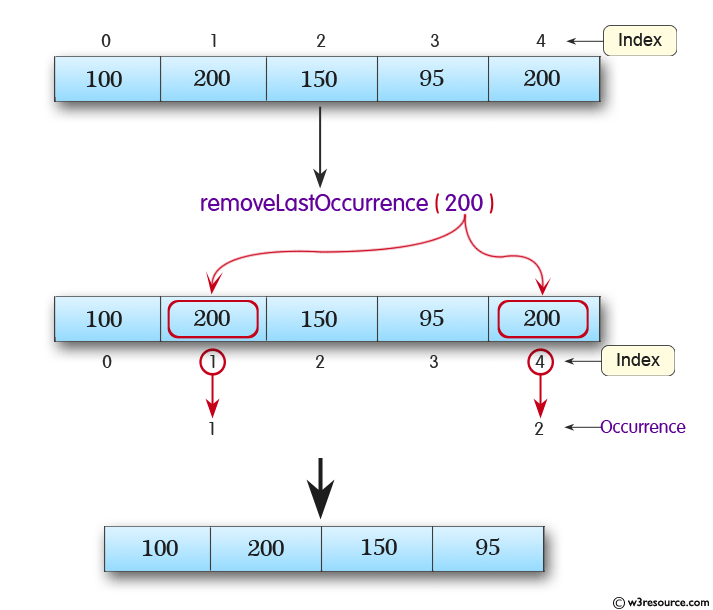Java ArrayDeque Class: removeLastOccurrence() Method
public boolean removeLastOccurrence(Object o)
The removeLastOccurrence() method is used to remove the last occurrence of the specified element in this deque (when traversing the deque from head to tail).
If the deque does not contain the element, it is unchanged. More formally, removes the last element e such that o.equals(e) (if such an element exists).
Package: java.util
Java Platform: Java SE 8
Syntax:
removeLastOccurrence(Object o)
Parameters:
| Name | Description |
|---|---|
| o | element to be removed from this deque, if present |
Return Value:
true if the deque contained the specified element
Return Value Type: boolean
Pictorial Presentation

Example: Java ArrayDeque Class: removeLastOccurrence() Method
import java.util.ArrayDeque;
import java.util.Deque;
public class Main {
public static void main(String[] args) {
// Create an array deque
Deque<Integer> deque = new ArrayDeque<Integer>(8);
// Use add() method to add elements in the deque
deque.add(100);
deque.add(200);
deque.add(150);
deque.add(95);
deque.add(200);
// Print all the elements of the original deque
System.out.println("Elements of the original deque:");
for (Integer number : deque) {
System.out.println("Number = " + number);
}
// removeLastOccurrence() will remove last occurrence of element 200
deque.removeLastOccurrence(200);
// Print all the elements available in deque
System.out.println("New deque:");
for (Integer number : deque) {
System.out.println("Number = " + number);
}
}
}
Output:
Elements of the original deque: Number = 100 Number = 200 Number = 150 Number = 95 Number = 200 New deque: Number = 100 Number = 200 Number = 150 Number = 95
Java Code Editor:
Previous:removeLast Method
Next:size Method
